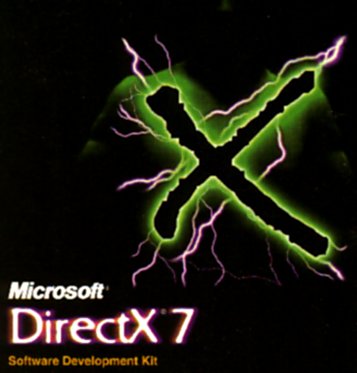
![]()
DirectX Game Programming Introduction[ Game Development Home | Internships in the Game Industry | Game Ideas | Game Books ] What is DirectX?
DirectX is a software development kit (SDK) for the Windows operating system that allows programmers to directly access a computer's hardware without going through the win32 GDI, which is slow. This translates into faster games. Microsoft created this SDK to allow game developers to use Windows instead of DOS as a platform. Previously, all games were developed for DOS because the win32 GDI was too slow. Microsoft didn't want to risk losing gamers to alternate operating systems, so they introduced a SDK to encourage developers to target the windows platform. Microsoft's first attempt was a failure. However, after a few revisions, Microsoft had got it right and had pleased game developers. Currently all major retail computer games are targeted for the Windows platform. How does it benefit a Game Programmer?
Let's face it. DOS is dead. People are not willing to go though the
hassle to get a DOS game working anymore (remember extended memory
and load high commands?). If you want to do professional programming
nowadays, you only have one option: DirectX. Sure, Linux and Macintosh
are other possibilities, but currently they don't have anywhere near
the user base that Windows has. The switch from DOS to DirectX is a BIG change. You need to change
the way you design and write code. In addition, games need to be made
event driven as opposed to a procedural C program. At first, DirectX
seems difficult to most people. Even the experts complain about it
now and then. But after a little practice and learning the ropes,
it isn't too bad and the advantages far outweigh the investment in
learning it. Positive
Negative
Analysis
<< Back to Game DevelopmentQuestions? Comments? Share your thoughts on the Discussion Forums...
|

|
Unless otherwise noted, all contents are copyright © 1997 through 2007 Zingtech Computer Solutions and Michael Matczynski (
Check out wineries at Catch Wine.com:
Alabama Wineries - Alaska Wineries - Arizona Wineries - Arkansas Wineries - California Wineries - Colorado Wineries - Connecticut Wineries - Delaware Wineries - Florida Wineries - Georgia Wineries - Hawaii Wineries - Idaho Wineries - Illinois Wineries - Indiana Wineries - Iowa Wineries - Kansas Wineries - Kentucky Wineries - Louisiana Wineries - Maine Wineries - Maryland Wineries - Massachusetts Wineries - Michigan Wineries - Minnesota Wineries - Mississippi Wineries - Missouri Wineries - Montana Wineries - Nebraska Wineries - Nevada Wineries - New Hampshire Wineries - New Jersey Wineries - New Mexico Wineries - New York Wineries - North Carolina Wineries - North Dakota Wineries - Ohio Wineries - Oklahoma Wineries - Oregon Wineries - Pennsylvania Wineries - Rhode Island Wineries - South Carolina Wineries - South Dakota Wineries - Tennessee Wineries - Texas Wineries - Utah Wineries - Vermont Wineries - Virginia Wineries - Washington Wineries - West Virginia Wineries - Wisconsin Wineries - Wyoming Wineries

